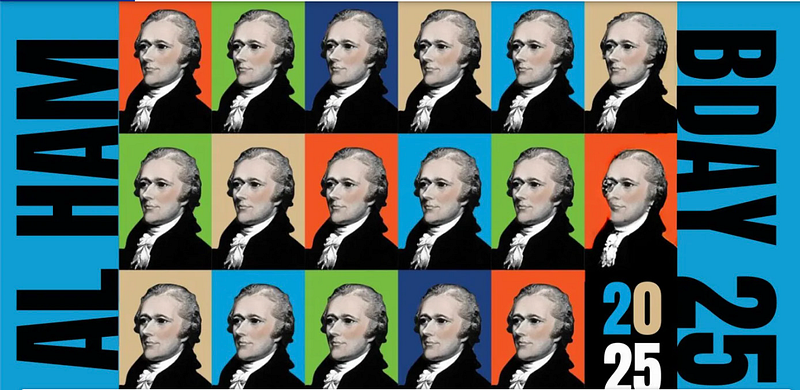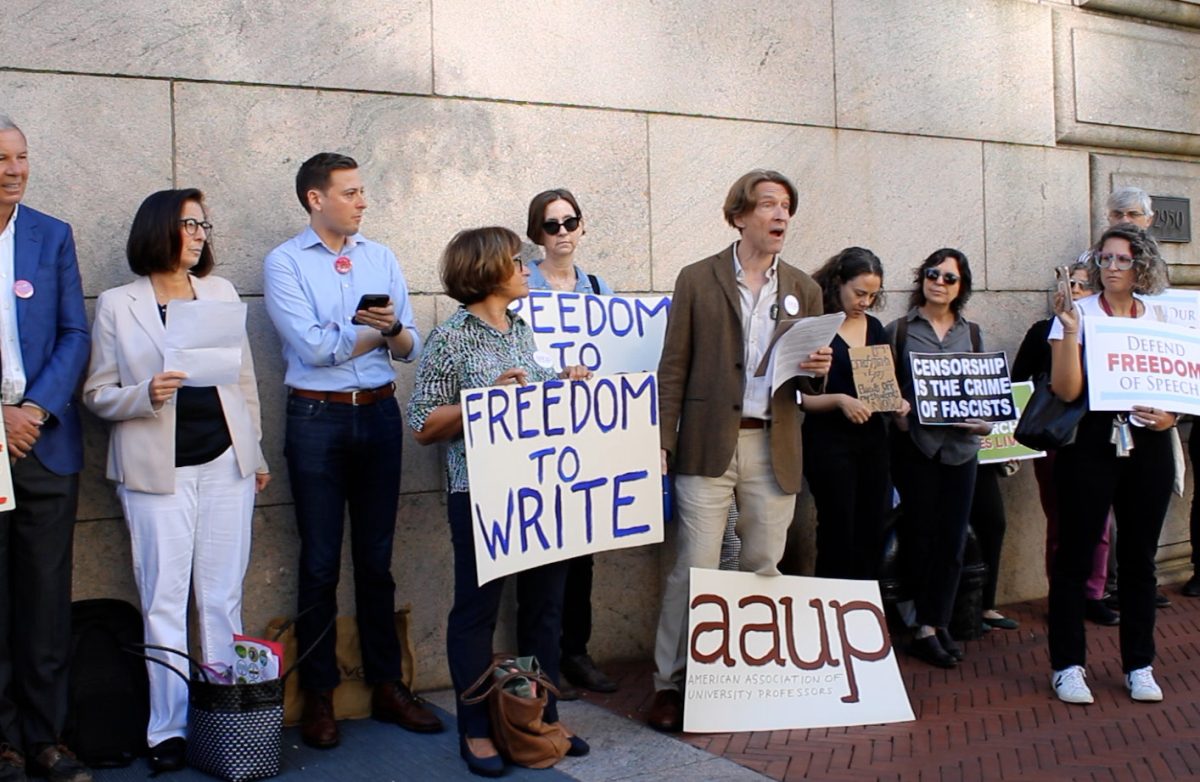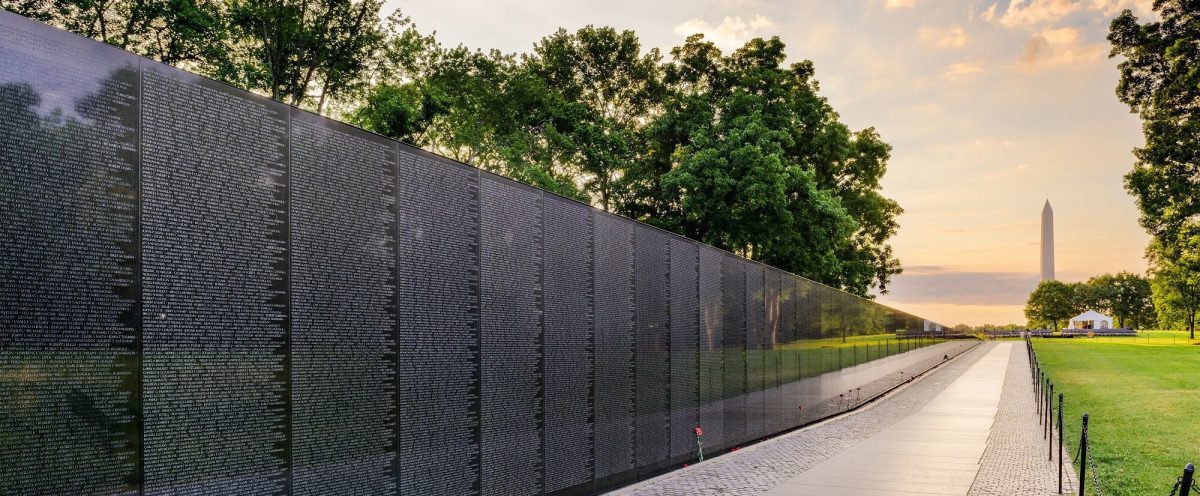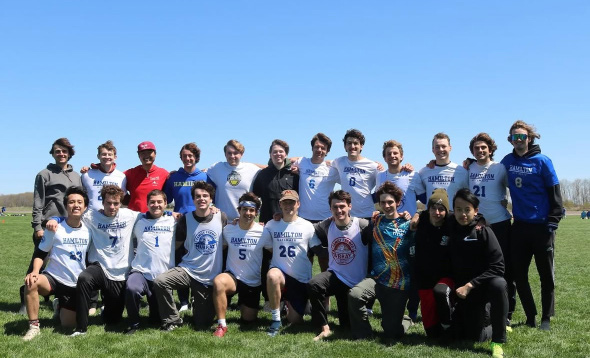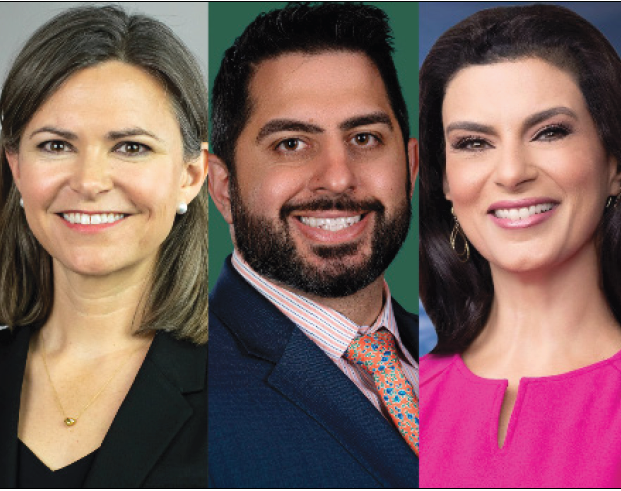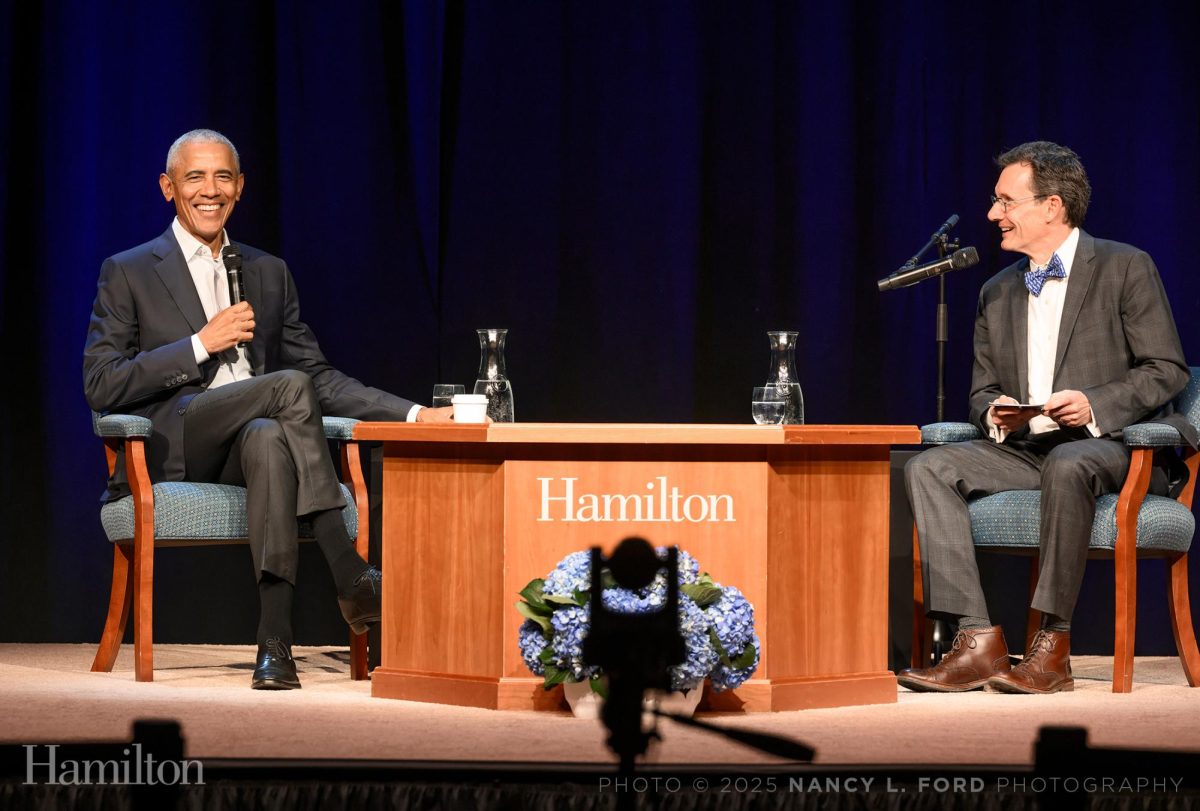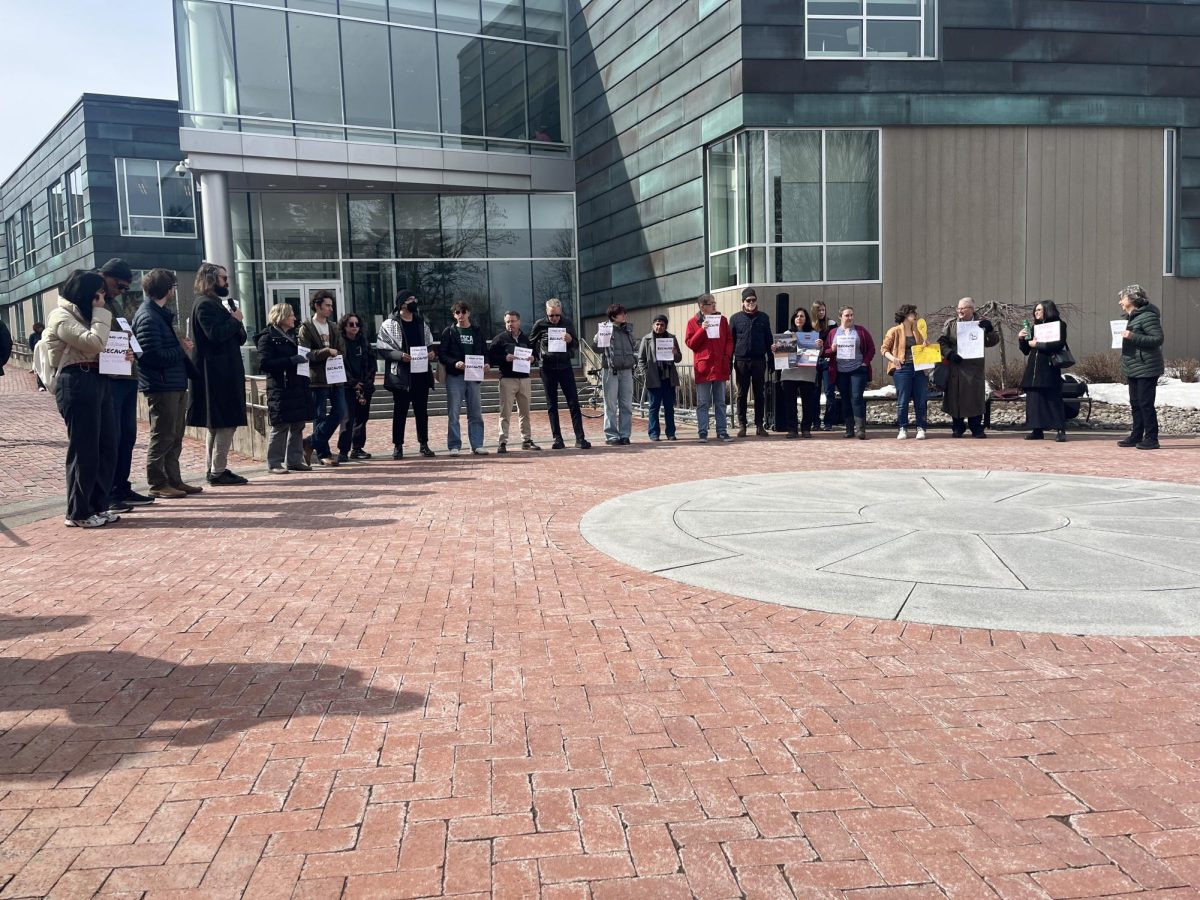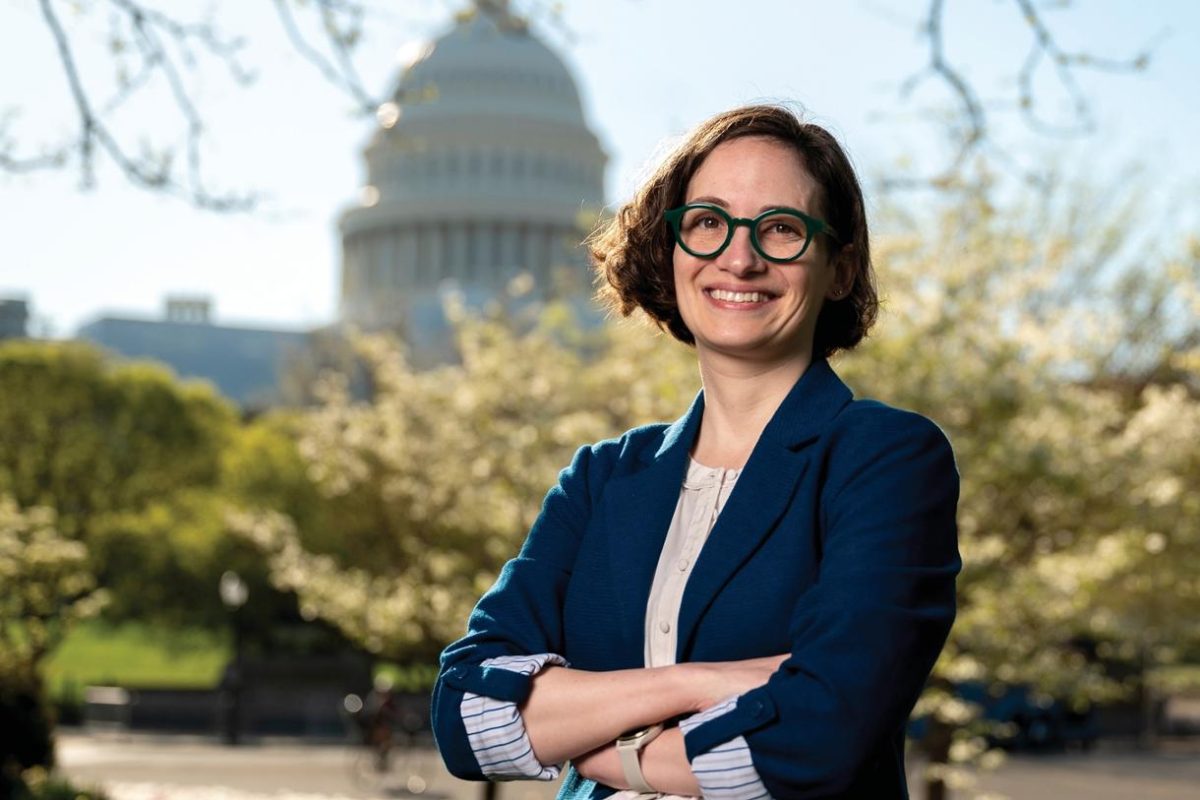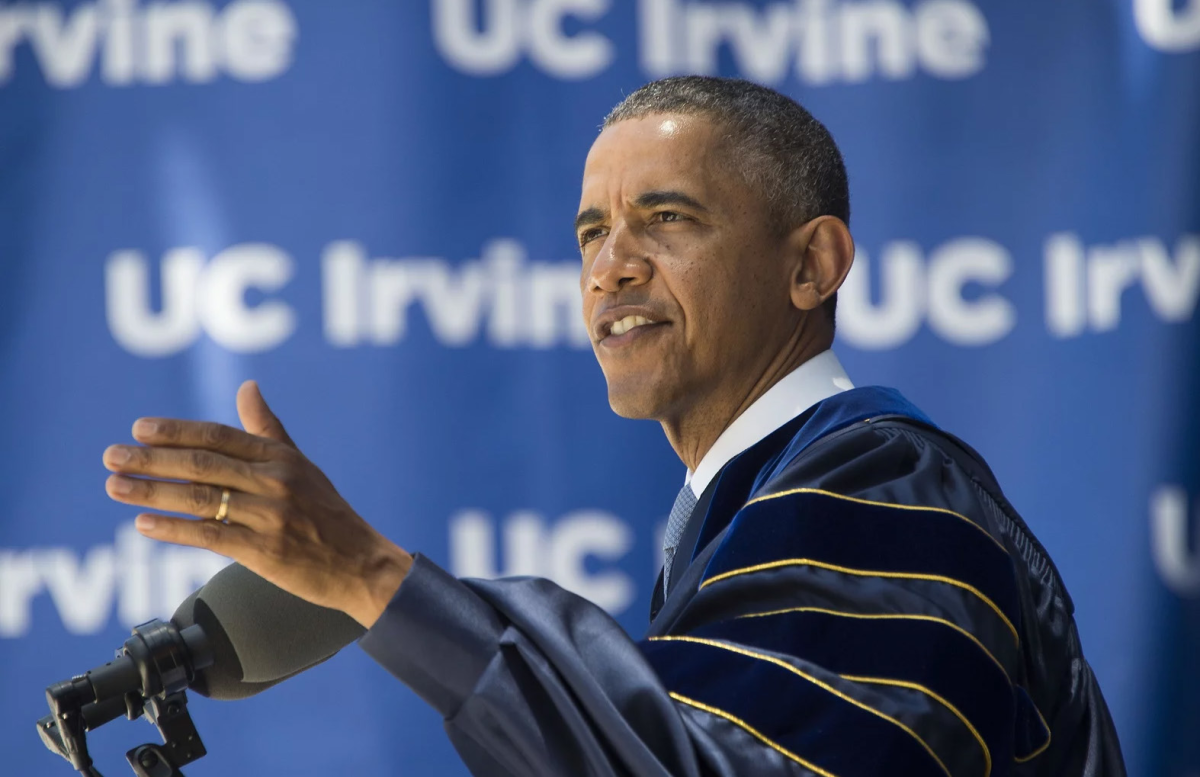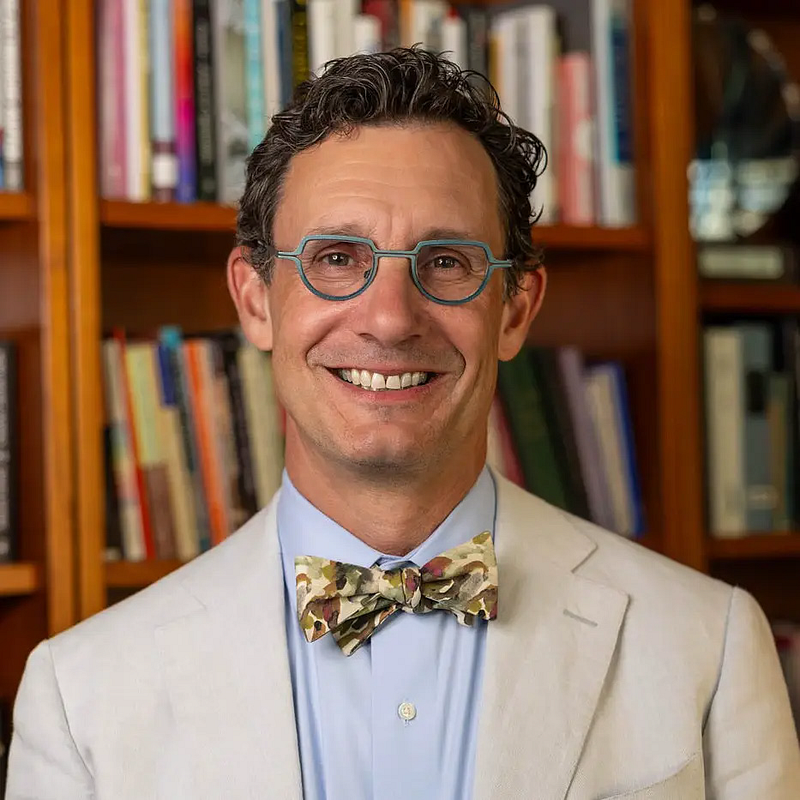
On Jan. 28, the Office of Alumni Relations hosted the first Alexander Hamilton birthday party with President Steven Tepper. Over 100 alumni joined the online gathering, which was led by Regional Committee leaders Jazmín Gatto de Torres ’02 and Dave Sadove ’10. As part of their winter series, the Anytown chapter of the Regional Affairs Commitee connects Hamiltonians in less populated regions and organizes virtual events.
Before the fireside chat began, Hamiltonians chatted, laughed and caught up. Tepper kicked off the chat with an anecdote about the harsh Clinton weather, joking that he congratulates himself each time he makes it up the Hill. He went on to say that becoming Hamilton’s president was the “best decision [he’s] ever made.”
Next, Tepper played an energetic video filled with vibrant visuals and music, intending to showcase the spirit of Hamilton. In the video, students and alumni discussed the countless “What If?” opportunities at Hamilton, aiming to inspire alumni to support the College’s mission of becoming a leading creative and innovative liberal arts institution.
Tepper then reflected on his time at Hamilton and shared his vision for the College’s future. He highlighted how Hamilton continues to honor the legacy of Alexander Hamilton, our “creative founding father who was looking to the future.” Tepper emphasized the need to view Hamilton College as “Hamilton saw the nation” — a place for imaginative, forward-thinking ideas that can shape education, the economy and culture.
Tepper noted his first impressions of the College, calling it the “best learning environment” and “place to spend the next four years for intellectual growth.” Tepper expressed how the deeply engaged students play a vital role in what makes Hamilton so special, referring to them as “edge of the seat students” always eager to ask questions. He explained that students often describe the campus as a place where we “hold the door open for each other,” both literally and metaphorically, due to Hamilton’s supportive, exploratory learning environment that encourages collaboration among Hamiltonians rather than competition according to Tepper. He explained that Hamilton students are not only highly motivated and rigorous but also deeply curious, largely due to the open curriculum. They enjoy exploring unique, niche courses outside their major. He also acknowledged the wonderful talents of the professors who are “master craftsmen,” “approaching everything as an artist would” and thinking about how to best prepare students for a rapidly changing world.
Tepper shifted the conversation to Hamilton’s vision for becoming the most “important liberal arts college,” focusing on key areas for attention: human-human, human-machine, human-idea and human-environment interactions.
On the topic of technology, Tepper called for “authentic intelligence” rather than artificial intelligence, envisioning technology integrated across all disciplines, with each field contributing to the future of innovation. He underscored the new Innovation Center, which broke ground this fall, as a space for students to collaborate, take risks and advance creative ideas. Tepper also highlighted Hamilton’s partnership with the Oneida Nation, reflecting the College’s ongoing commitment to innovation grounded in its rich historical traditions.
Tepper acknowledged the ongoing critiques of higher education, particularly concerns about price and value. However, he emphasized Hamilton’s ambitious goal of “designing our own future” through the “What If?” initiative, which includes over 300 proposed ideas, some of which are already in progress. Additionally, he mentioned Hamilton’s new academic programs, including Curatorial, Jewish, and American Indigenous Studies programs.
The final segment of the event allowed for alumni to ask questions, which included concerns about DEI and the potential for an art/creative requirement in the curriculum. In response to the first, Tepper affirmed that there has been “no change in the way we are advancing” DEI efforts, emphasizing the commitment to ensure every student can thrive. Regarding the art requirement, the President expressed hesitation,
noting that students who take art classes at Hamilton are genuinely motivated by the open curriculum. However, he believes Hamilton can do more to integrate art across disciplines. Tepper acknowledged the “energetic and creative spirit” of Kirkland College, saying that Hamilton and its student body continue to embody and appreciate it today.
Tepper ended the call by saying, “We are a national laboratory for human capital. What we’re really about is producing humans that are most attuned and prepared for the challenges that we face. We are all aligned by the basic purpose of creating that incredible environment for human growth and learning.”
